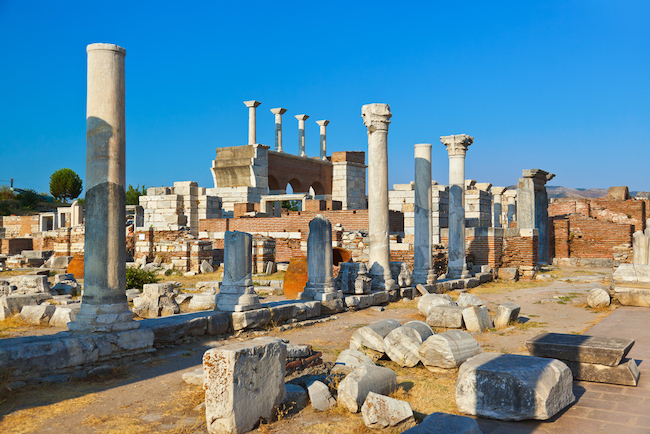The Baha’i teachings present a provocative vision of an ever-advancing civilization—one that promises transformative shifts in perspective and cultivates curiosity about the human condition. This vision is built upon foundational principles that elevate individual and collective responsibility towards the advancement of society. By probing the depths of Baha’i philosophy, we uncover a blueprint for progress that extends beyond conventional paradigms of development, encompassing spiritual, social, and material dimensions.
At the heart of Baha’i thought lies the premise that humanity is inextricably linked to an unfolding narrative. This narrative emphasizes the evolution of civilization through progressive revelations. Baha’is believe that each religious manifestation, from Moses to Muhammad and beyond, has contributed to a continuous stream of divine guidance, propelling humanity toward higher stages of consciousness and societal maturity. The current era, marked by the advent of Baha’u’llah, is posited as a distinct juncture in this timeline—one characterized by greater access to knowledge and elevated expectations for moral and ethical conduct.
The first tenet of the Baha’i doctrine regarding an advancing civilization is the oneness of humanity. This concept transcends mere idealism, urging a paradigm shift where diversity is celebrated as an asset rather than a hindrance. Instead of viewing cultural, racial, and national differences as divisive elements, Baha’is promote an understanding grounded in unity. This promise seeks to mitigate the fractiousness that often characterizes human interaction, engendering a spirit of cooperation, empathy, and mutual respect. Implementing educational systems that underscore this truth is imperative for nurturing future generations equipped to foster harmonious coexistence.
Central to this evolving global civilization is the principle of equality—particularly gender equality—which is deemed vital for societal progress. In many cultures, entrenched patriarchal structures have stymied the potential of half the world’s population. A sincere commitment to dismantling these archaic barriers not only liberates women but invigorates societies as a whole. The Baha’i teachings articulate that when one gender is elevated, society thrives; thus, the emancipation of women is non-negotiable in the quest for holistic advancement.
Moreover, the Baha’i perspective on the integration of science and religion offers a novel approach towards societal advancement. Traditionally viewed in opposition to each other, these spheres are envisioned as complementary forces in the pursuit of truth. Baha’is assert that genuine progress hinges on a synthesis of spiritual values and scientific inquiry. This amalgamation paves the way for innovations that honor both the material and spiritual aspects of existence, promoting an ethical framework that governs technological development. As civilization is propelled into an era defined by rapid technological growth, this dual reliance becomes increasingly crucial.
Furthermore, the Baha’i vision champions the establishment of a world governance structure replete with mechanisms for global cooperation. Such governance is predicated on principles that transcend mere political considerations; it encompasses a moral imperative to safeguard the welfare of all people. The emergence of international bodies that facilitate dialogue, conflict resolution, and equitable resource distribution is seen as an essential facet of this vision. This structure not only provides a platform for diverse voices but also inspires a global consciousness that transcends nationalistic sentiments. The nurturing of this global ethos positions humanity to collectively confront the multifaceted challenges of our time, from climate change to socio-economic inequalities.
Additionally, Baha’i teachings articulate an urgent call for the establishment of educational systems aimed at developing the capacities of both the young and the old. Education must not be narrowly defined as the acquisition of knowledge; rather, it should encompass moral and ethical training, fostering virtues such as integrity, justice, and service. By instilling values of spirituality and responsibility, education becomes a conduit for cultivating agents of change who will strive for the advancement of civilization. This forward-looking investment in human resources is key to nurturing individuals who are not only well-informed but also compassionate and socially-conscious.
An often overlooked but vital dimension of the Baha’i perspective is the emphasis on the moral responsibility of individuals within society. Each person is viewed as an agent of change, endowed with the capacity to influence their surroundings positively. This principle encourages proactive participation in community affairs, social service, and humanitarian endeavors. The belief that every individual can impact the course of civilization instills a sense of agency and purpose, invigorating the spirit of collective action.
As we contemplate the Baha’i teachings on an ever-advancing civilization, the promise of a revised worldview emerges—one that is optimistic and transformative. Within this framework, the recognition of interconnectedness serves as a catalyst for dialogue and understanding, bridging divides and fostering a universal kinship. The call for the integration of spiritual and scientific thought and the pursuit of gender and racial equality presents a timely opportunity for transcending historical grievances and building a foundation for future cooperation.
In conclusion, the Baha’i blueprint for an advancing civilization urges a radical rethinking of current societal paradigms. By embracing the principles of unity, equality, and collaboration, humanity is invited to embark on a journey marked by shared aspirations and mutual enrichment. As we stand at this pivotal moment, the propagation of these teachings can lead to profound societal transformations, nurturing an ever-advancing civilization poised to navigate the complexities of modern existence with wisdom and grace.
